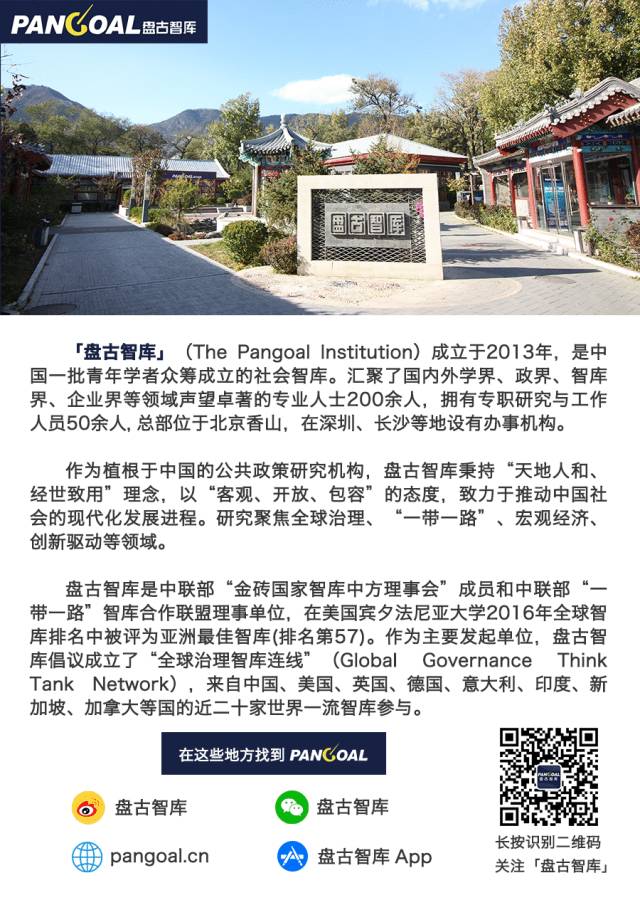

赵明昊 盘古智库学术委员
中共中央对外联络部
当代世界研究中心副研究员
The 2017 G20 summit will take place Friday and Saturday in the German city of Hamburg. Chinese President Xi Jinping is scheduled to attend the conference and hold a bilateral meeting with his US counterpart Donald Trump.
Since Trump entered the White House, a rupture has appeared between the US and Europe. At the same time, Washington's ties with Beijing have also been subjected to a slew of disputes despite overall stability. Against this backdrop, Hamburg is set to become the stage for a dramatic show.
What does Germany want from the summit? Its primary goal is to safeguard free trade, which is also one of the major objectives on the agenda of the summit. Germany currently boasts a huge trade surplus accounting for more than 8 percent of its GDP, becoming a main target in Trump's trade protectionism policy. At one point, the US tried to prevent Germany from listing the free trade issue on the G20 agenda.
Furthermore, Germany and the US have seen increasingly overt disputes over the issue of so-called currency manipulation. Deutsche Bundesbank President Jens Weidmann strongly criticized the US quantitative easing policy as enhancing its own currency advantage but damaging the stability of the international financial system.
At the G7 summit in May, Trump blasted Germany's tremendous trade surplus and NATO military spending. German Vice Chancellor and Minister for Foreign Affairs Sigmar Gabriel said, "It is true that we have a difficult situation in relations between the United States and Germany." It is fair to say the G20 summit is a key maneuver for Germany to resist US pressure and the Trump shock doctrine.
Berlin is expected to join hands with Beijing and other possible allies to move forward with the Paris climate deal. Since the US withdrew from the historic agreement, the financial support of the developed world for the UN and developing countries to tackle climate change is in question. Germany hopes to further push ahead with cost sharing, including persuading China to assume more responsibility. It also expects to fully apply its advantages in sustainable development and green finance to dealing with climate change.
Germany is striving to gear up for growing cooperation with Africa. While Washington has entered a strategic contraction period in recent years, Berlin has become the most recent leader of the Western world and started pursuing major power diplomacy.
The German government is also ratcheting up investment in the Agenda 2063 "Marshall Plan" for Africa, helping the continent put the plan in place and encouraging private investment and third party cooperation. In the fifth Africa-EU Summit to be held this November, Germany is expected to play a dominant role.
With such devotion to issues blighting the African continent, Berlin also aims at more effectively addressing the inflow of "economic migrants" from Africa to Europe and seeking the diversification of energy and resource imports in the post-Ukraine crisis era.
As part of the rotating G20 leadership troika, both China and Germany are expanding their policy coordination effort that stretches out to global governance and African development.
In March, Gabriel rolled out a new orientation for Germany's Asia policy and suggested the country look east to deepen contact with China, India and other Asian nations.
A recent opinion poll from the German Institute of Global and Area Studies revealed that 46 percent of Germans deem Germany's relations with China are as important as with the US.
The country longs to enhance cooperation with China in global economic governance, given their converged interests in the areas of infrastructure and connectivity around the world, international rules and coordination mechanisms in the digital economy, and the establishment of a stable financial framework.
Nonetheless, Germany cannot afford to ignore that there are obstacles in Beijing-Berlin ties. Germany is using Article 15 of China's accession to WTO as a bargaining chip. It once created a difficult position for China over its steel and aluminum overcapacity. In addition, German automakers have been grumbling about limited access to China's clean energy car market.
But despite all this, China and Germany have the responsibility to treat their bilateral relations from a long-term perspective and consolidate the G20's role as a platform for global governance. Under the shock of the "America First" policy, it is increasingly difficult for major countries to coordinate with each other on urgent international issues. If none of them are willing to shoulder their due obligations, the world will likely fall into a difficult situation.
Therefore, China is expecting to exert a facilitating leadership to gain traction for the G20 mechanism. ■
主编邮箱:[email protected]

赵明昊
盘古智库学术委员、中共中央对外联络部当代世界研究中心副研究员、亚太安全合作理事会(CSCAP)中国国家委员会委员。主要研究领域为美国外交、中美关系和亚太安全。在《国际政治研究》《美国研究》《现代国际关系》《当代世界》等刊物发表多篇论文,部分文章被《求是》杂志、中国人民大学复印报刊资料、《新华月报》等摘编或转载。专著有《战略克制:新型中美关系的构建》(人民出版社)。译著有《自由主义利维坦:美利坚国际秩序的起源、危机和转型》(上海人民出版社)。

















